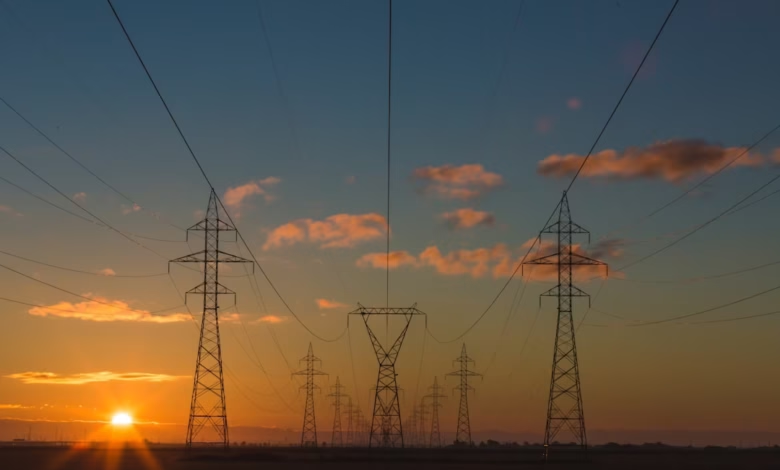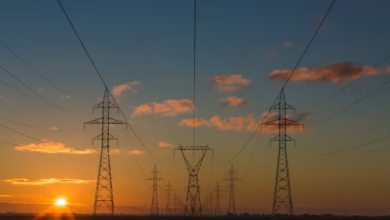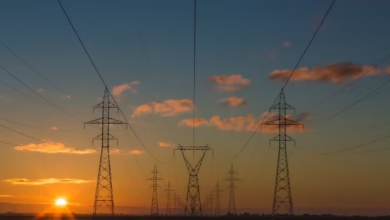Energy and Climate Change: Harnessing Renewable Energy and Innovations to Combat Global Warming

As the world grapples with the pressing challenges of climate change, the role of energy in combating global warming has never been more critical. The transition from fossil fuels to renewable energy sources is not only a necessity for reducing carbon emissions but also a pathway to achieving energy security and sustainability. This article delves into the multifaceted relationship between energy and climate change, exploring how various energy sources—including fossil fuels, nuclear energy, and green energy alternatives—impact our environment. We will analyze the innovations in energy efficiency and storage that are essential for a successful energy transition, highlighting technologies such as smart grids, hydrogen energy, and carbon capture. Additionally, we will navigate the current global energy trends, examining energy markets, policies, and investments that guide us toward a greener future. By understanding the intricate dynamics of energy production and consumption, we can better address the climate crisis and pave the way for a sustainable planet.
- 1. The Impact of Energy Sources on Climate Change: Analyzing Fossil Fuels, Renewable Energy, and Nuclear Options
- 2. Innovations in Energy Efficiency and Storage: Key Strategies for a Sustainable Energy Transition
- 3. Global Energy Trends: Navigating Energy Markets, Policy, and Investment for a Greener Future
1. The Impact of Energy Sources on Climate Change: Analyzing Fossil Fuels, Renewable Energy, and Nuclear Options
The impact of various energy sources on climate change is profound and multifaceted. Fossil fuels, which include coal, oil, and natural gas, are the primary drivers of greenhouse gas emissions. When burned for electricity, heating, or transportation, they release significant amounts of carbon dioxide (CO2) and other pollutants, contributing to global warming. Despite their economic advantages and existing infrastructure, the reliance on fossil fuels poses substantial risks to energy security and environmental sustainability.
In stark contrast, renewable energy sources—such as solar power, wind energy, hydropower, and bioenergy—offer a cleaner alternative. These green energy options produce little to no emissions during operation, making them essential in the fight against climate change. The energy transition towards renewables is supported by advancements in energy storage technologies, enabling the capture and storage of energy generated from intermittent sources. This innovation enhances energy efficiency and allows for more reliable energy supply across smart grids.
Nuclear energy presents another viable option in the climate change discourse. It generates substantial amounts of thermal energy with minimal greenhouse gas emissions. While concerns regarding safety and waste management exist, nuclear energy can play a crucial role in diversifying the energy mix and reducing reliance on fossil fuels. In addition, ongoing research and development (R&D) in nuclear technology could lead to safer and more efficient reactors, further contributing to the decarbonization efforts.
Furthermore, the integration of electric vehicles (EVs) into the energy market represents a significant step towards reducing carbon footprints. By leveraging renewable energy sources for charging, EVs can help decrease dependency on fossil fuel-based transportation. Energy innovations, such as hydrogen energy and carbon capture technologies, also hold promise in mitigating emissions and enhancing energy efficiency.
As global energy trends shift towards sustainability, energy policy must prioritize investments in renewable infrastructure and energy exports. Countries aiming for energy independence can focus on distributed energy systems that harness local resources, thereby reducing energy imports and boosting energy security. The comprehensive approach to energy economics not only addresses climate change but also supports sustainable economic growth.
In conclusion, the role of energy in combating global warming cannot be overstated. A balanced mix of renewable energy, nuclear options, and efficient energy systems is essential for a sustainable future. Stakeholders across energy markets must collaborate to implement effective energy policies that facilitate this transition, ensuring a resilient and environmentally friendly energy landscape.
2. Innovations in Energy Efficiency and Storage: Key Strategies for a Sustainable Energy Transition
Innovations in energy efficiency and storage are pivotal in the global transition towards sustainable energy systems. As the world grapples with climate change and the urgent need to reduce greenhouse gas emissions, these innovations play a crucial role in maximizing the potential of renewable energy sources while ensuring energy security and economic viability.
One of the most significant advancements in energy efficiency is the development of smart grids. Smart grids utilize advanced technology to monitor and manage energy flow more effectively, enabling a more efficient distribution of electricity generated from renewable sources such as solar power and wind energy. This not only reduces energy losses but also enhances the integration of distributed energy resources, allowing households and businesses to contribute to energy markets by generating and selling excess energy back to the grid.
Energy storage technologies are equally essential for a successful energy transition. As we increase our reliance on intermittent renewable energy sources, such as hydropower and solar power, effective energy storage solutions become critical to balance supply and demand. Innovations in battery technology, including the use of lithium-ion and emerging solid-state batteries, are making energy storage more efficient, cost-effective, and scalable. This improvement supports the widespread adoption of electric vehicles and the broader implementation of renewable energy systems.
In addition to traditional energy storage methods, hydrogen energy is gaining traction as a versatile energy carrier. It can store excess energy generated from renewable sources and be used in various applications, including transportation and industrial processes. Hydrogen's potential to decarbonize sectors that are challenging to electrify, such as heavy industry, is a significant aspect of future energy policies aimed at combating climate change.
Moreover, energy efficiency is at the forefront of energy innovations. By implementing advanced technologies and practices, industries and households can significantly reduce energy consumption. For example, the integration of energy-efficient appliances, smart thermostats, and improved insulation in buildings can decrease reliance on fossil fuels while enhancing overall comfort and reducing energy costs.
Policies that support energy investment in these innovations are vital. Governments and private sectors must collaborate to create favorable energy policy frameworks that encourage research and development (R&D) in energy technologies. This collaboration will foster innovation in energy economics, ensuring that the transition to a low-carbon economy is not only sustainable but also economically viable.
In conclusion, the innovations in energy efficiency and storage are key strategies in the fight against climate change. By promoting renewable energy, enhancing energy security, and adapting energy markets to support these advancements, we can create a more sustainable energy landscape that mitigates the impacts of global warming while ensuring economic growth and stability.
3. Global Energy Trends: Navigating Energy Markets, Policy, and Investment for a Greener Future
In the quest to combat climate change, understanding global energy trends is essential for navigating the complex landscape of energy markets, policy, and investment. The shift towards renewable energy sources such as solar power, wind energy, and hydropower is gaining momentum as governments and industries recognize the urgent need to reduce reliance on fossil fuels. This energy transition is not only critical for mitigating greenhouse gas emissions but also for enhancing energy security and driving economic growth.
Investment in renewable energy technologies is on the rise, with significant funding directed toward energy storage solutions and smart grids. These innovations are crucial for managing the intermittent nature of renewable energy, ensuring that energy supply meets demand while also promoting energy efficiency. The development of thermal energy systems and advanced energy storage technologies, such as batteries and hydrogen energy, facilitates a more resilient and adaptable energy infrastructure.
Energy policy plays a pivotal role in shaping the future of energy markets. Governments are increasingly implementing policies that support energy R&D and incentivize investments in clean energy projects. This includes the promotion of electric vehicles, which are becoming integral to reducing carbon emissions in the transportation sector. Furthermore, policies that encourage carbon capture and bioenergy can help transition existing fossil fuel infrastructures towards greener alternatives.
The dynamics of energy imports and exports are also evolving. Countries are diversifying their energy sources to enhance energy security, investing in offshore energy projects, and exploring distributed energy systems. This shift not only provides countries with greater control over their energy resources but also positions them as key players in the global energy economy.
As we move towards a greener future, understanding these global energy trends is vital for stakeholders across all sectors. By embracing energy innovations and adapting to new energy economics, we can navigate the complexities of energy markets and policies, ultimately contributing to a more sustainable and resilient world in the face of climate change.
In conclusion, addressing climate change is intricately linked to the decisions we make about energy. The impact of energy sources, from fossil fuels to renewable energy and nuclear options, plays a pivotal role in shaping our planet's future. Embracing innovations in energy efficiency and storage is essential for a successful energy transition, enabling us to harness green energy effectively while enhancing energy security.
As we navigate global energy trends, understanding the dynamics of energy markets, policy, and investment becomes crucial. It is evident that sustainable practices, such as carbon capture, the development of smart grids, and the promotion of offshore energy, are vital for mitigating the adverse effects of climate change.
The integration of diverse energy sources—such as hydropower, bioenergy, and hydrogen energy—coupled with advancements in electric vehicles and distributed energy systems holds the key to a greener future. By prioritizing energy R&D and supporting energy exports and imports that align with sustainable goals, we can create a robust framework to combat climate change.
As we move forward, the commitment to energy innovations—ranging from solar power and wind energy to thermal energy solutions—will be instrumental in shaping a resilient and sustainable energy landscape. The choices we make today regarding energy will determine our planet's health tomorrow, making it imperative that we act decisively and collaboratively to foster a sustainable energy future.





